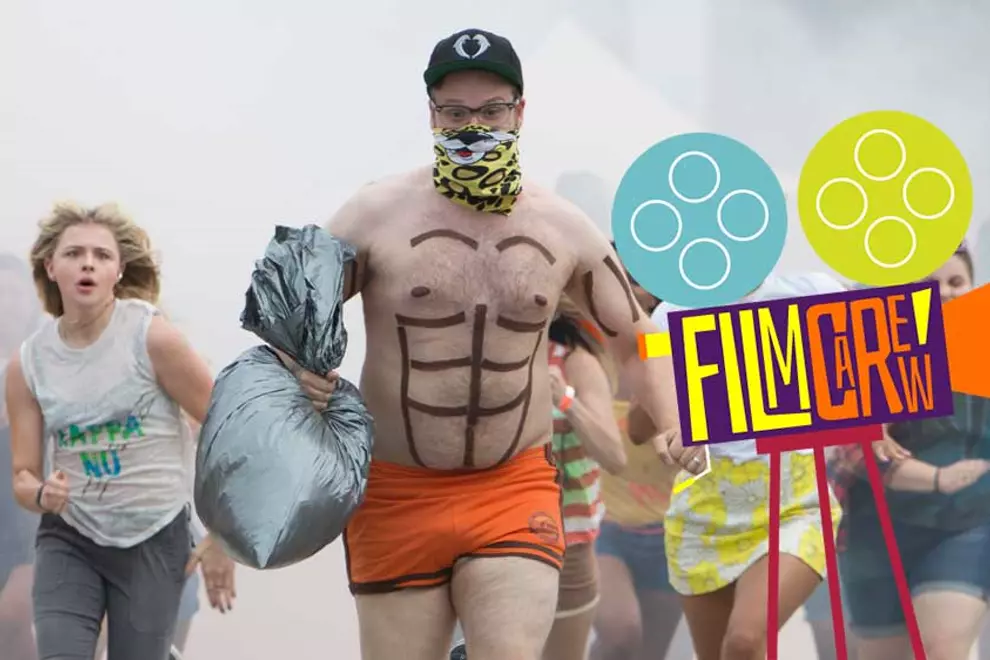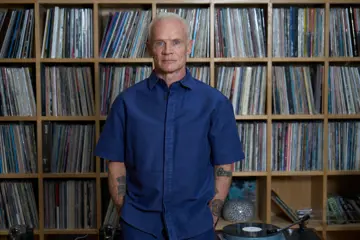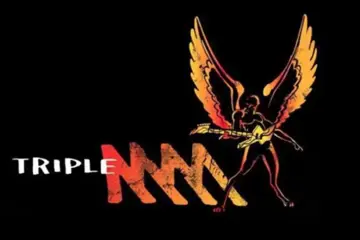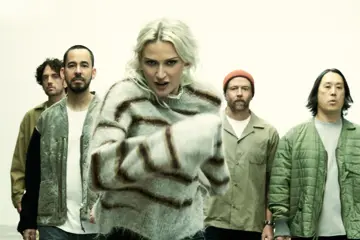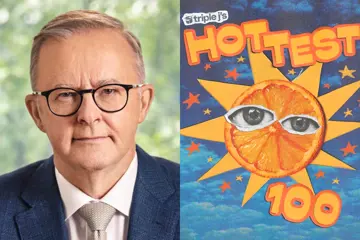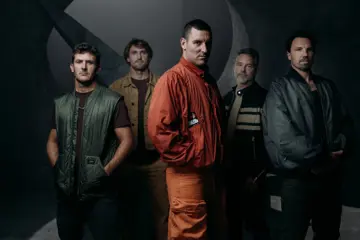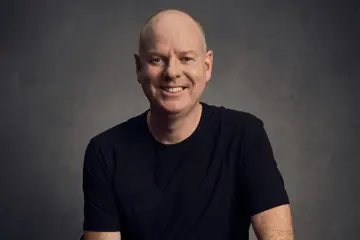BAD NEIGHBOURS 2

“Don’t call ’em hoes, that’s not cool anymore,” pronounces Zac Efron; that eternal bro-code of macho frat dudes, bros before hoes, one of the things called into question by Bad Neighbours 2. A contractual-obligation sequel if ever there were one, this second lap around the block — released right on two years after the 2014 original — essentially re-does the first film; only, this time, with fraternity replaced by sorority.
This, in turn, leads to screenwriters Andrew J. Cohen and Brendan O’Brien, and director Nicholas Stoller, calling into question that which they comically glorified last time around. There’s lots of talk of sexism and privilege; with its central sorority founded — by Chloë Grace Moretz, Kiersey Clemons, and Beanie Feldstein — as an alternative to the old model of predatory-males and giggly girls, after their experience attending a frat party is depicted as a dark, demeaning, date-rapey nightmare.
And, so, their newly-founded female-empowerment sorority moves in next door to Rose Byrne and Seth Rogen, and pranks, hijinks, and, hell, even shenanigans ensue; as each house tries to drive the other out. Drawn into the fray is Zac Efron, who’s caught between the kids and the adults; still sadly clinging to his college glory-days, disillusioned with his status as retail McJob slave (with, as he points out, a criminal record after the first film). Efron’s shirtless form is again depicted as magnetic, erotic; and there’s even a Magic Mike-esque strip routine which serves as symbol of Bad Neighbours 2’s attempt to redress the bro-ism of its first film; a tacit acknowledgement that the filmmakers are actually aware that half the audience for this film will be ladies.
There’s also Dave Franco — who, smirkin’ and slurrin’, has never seemed more Franco-ish — now out and proud, ready to get married to John Early. And, in another moment of comic subversion, Hannibal Buress and Jerrod Carmichael play a pair of black police whose brutality is reserved for whites.
Don't miss a beat with our FREE daily newsletter
There’s a host of other funny humans — Abbi Jacobson, Lisa Kudrow, Ike Barinholtz, Carla Gallo, Billy Eichner, Liz Cackowski, Nora Lum — and jokes coming thick and fast. Lots of the gags are just running back ideas from the first film (airbags, kids playing with sex items, Rogen and Byrne as negligent parents), but there’s enough laughs to be had for Bad Neighbours 2 to justify its existence.
GREEN ROOM

Are you scared of dogs? If so, stay the fuck away from Green Room, Jeremy Saulnier’s follow-up to Blue Ruin, which the director jokingly describes as being influenced by both River’s Edge and Scooby Doo. The phrase ‘murderous attack pitbulls’ is in play, here, in a tale of a DIY punk band (whose ranks include Anton Yelchin and Alia Shawkat) who take a last-minute show at a rural skinhead bar in an attempt to earn the gas money to get back home. In an act of old-fashioned punk defiance, they cover Nazi Punks Fuck Off, creating a tense scene whose tension’ll only grow tenser when a girl ends up dead in the green room backstage.
And, so, they’re held hostage by a crew of skins presided over by Sir Patrick Fucking Stewart, Captain Picard now doing a fine line in terrifying standover villainy. Whilst the band-locked-up-backstage scenario starts as siege-movie, soon Green Room tilts towards survival-horror. Saulnier delivers a darkly-comic, utterly-brutal homage to the nastiest of grindhouse cinema; in which the tension never relents and the blood flows free. Imogen Poots — in a haircut that makes her look like a classic Aussie Sharpie — turns out to be the biggest bad-ass in the crew of meddling kids; foiling dastardly skinhead plans by wielding a box-cutter like a weapon of war. There’s disembowelling and throat-slitting on hand; oh, and, of course, throats ripped out by dogs. Whether cynophobic or not, consider yourself duly warned.
BASTILLE DAY
“We’re not too different, you and I,” says Idris Elba, a “reckless, insubordinate, irresponsible” CIA agent, to his totally-unlikely, original-odd-couple buddy-cop partner, pickpocket Richard Madden. And, the mostly-budgeted question lingers: is Elba uncorking this creaky action-movie cliché with irony, or without? In Bastille Day, the actual comic banter between the pair falls flat, but the film itself is hilarious. Its ridiculous premise — “a terrorist conspiracy in the heart of the police force!”; and, yes, this line is actually said out loud — is unconcerned with plausibility. And the film, too, is unconcerned with the tentpole spectacle and grim gravitas that get play in most multiplex movies involving plots to blow up Paris.
Instead, Bastille Day is fast (90 minutes!), fun, silly, cheap, nasty. Elba stars as the give-a-shit spy who doesn’t play by the book, and is — of course! — taken off the case halfway through. Madden is the American pickpocket who accidentally steals a bag with a bomb in it; Charlotte Le Bon the French refusenik who, having lost the bomb, is now hunted by hoodlums; the three of them both running for their lives and after the bad guys. Director James Watkins (who previously made the smart horror movies Eden Lake and The Woman In Black) stages the attendant rooftop-chases, car-chases, fistfights, and gun-toting standoffs with economy and energy; the film throttling along happily, often idiotically.
Screenwriter Andrew Baldwin (who also penned the upcoming Bourne movie) aims for some contemporary resonance by involving Anonymous-esque dissidence and Occupy-style revolt, but even this feels a little cheesy. “It’s building as planned. The hashtags will tip it over!” says the evil crooked-cop villain, of a diabolical scheme coming together. And this, too, is hilarious. Again, you wonder whether or not a line like this is actually supposed to be funny, but, either way, Bastille Day can never be accused of taking itself seriously.

